A Deep Dive into Japanese Convenience Stores: More Than Just a Quick Stop
Whether it's to buy concert tickets or stock up on seasonal treats, you’ll find yourself in a convenience store if you stay in Japan long enough. These cultural hubs are very different from your average shop.
The Unique World of Japanese Convenience Stores

Japan boasts over 55,000 convenience stores. The term konbini refers to a Japanese convenience store, which is a retail store that sells both foreign and local everyday items. The stores are famous for selling food items, including snacks, beverages, sweets, bento boxes, and alcohol. You can also buy items ranging from clothing and toiletries to lifestyle goods and medicine.
A typical convenience store in Japan is quite different from the ones in other countries. Everything about the konbini is tailored to make the shopping experience as convenient as possible. They’re open 24/7 and provide a wide variety of services, such as postal services, ATM services, and payment services. They also stock items one would typically find in larger supermarkets.
The most prevalent convenience chains in Japan are 7-Eleven, Family Mart, and Lawson, which operate around 40%, 30%, and 25% of the konbini stores in the country, respectively. Other, less common chains include Ministop, Daily Yamazaki, and NewDays. These stores offer more than just quick snacks and essentials, serving as cultural hubs that cater to every aspect of daily life. They offer a consistent environment, well-organized setups, and amiable customer service.
Our post promises to explore all aspects of Japanese convenience stores. We’ll look at their history, unique traits, leading chains, and cultural significance.
The Evolution of Konbini: From Corner Stores to Cultural Icons
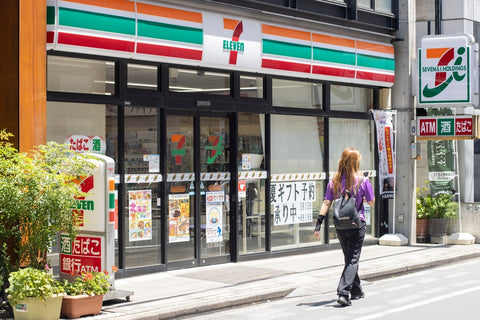
The first ever convenience store in Japan was opened in 1969, 42 years after the first one in the United States. In 1974, Ito-Yokado, a Japanese department store chain, partnered with Southland Corporation to launch their originally American 7-Eleven stores in Japan.
Despite their aggressive expansion, 7-Eleven corner stores struggled to meet the pain points of the Japanese market and failed to enjoy the same levels of patronage as their US counterparts. But things changed for the better in 1978, when they introduced the sale of onigiri (Japanese rice balls). That, coupled with a fast delivery system and an efficient payment service, led to the initial success of the first convenient stores in Japan.
By the early 1980s, there were over 10,000 such stores competing for their share of the growing market. The trend was to have a unique offering that sets your store apart from the competition. 7-Eleven had their onigiri, Lawson offered healthier food options, and FamilyMart was famous for their fried chicken. By 1992, there were over 20,000 convenience stores in Japan.
These stores soon became indispensable parts of Japanese society. Ito-Yokado’s 7-Eleven stores in particular became so popular that the company bought out the entire American franchise. Japanese konbini started going international in the late 1990s and early 2000s. 7-Eleven, FamilyMart, Lawson, and Ministop are now operating in China, the US, Vietnam, and many other countries.
What Makes Japanese Convenience Stores Stand Out

It’s clear to see that convenience stores in Japan must be doing something different to be much more successful than stores in other countries. One massively unique feature that sets Japanese convenience stores apart from their global counterparts is their product range. These stores primarily focus on selling a wide range of hot and cold food items, such as onigiri, oden, ramen, other cup noodles, and fried chicken. The fact that they microwave some of their meals on the spot and provide hot foods also helps.
The customer service at Japanese convenience stores is also much better than at other establishments. Staff members welcome visitors warmly and offer polite suggestions when necessary. The stores are open 24 hours a day, 7 days a week. Konbini also offers unique services such as free Wi-Fi, free clean restrooms, duty-free shipping, ticket sales, and ATM services.
A Tour of Japan's Major Convenience Store Chains
We briefly mentioned them earlier in this post, but now it’s time to take a look at the giant chains that have brought konbini so much global fame. We’ll explore each konbini chain and reveal what makes it unique.
7-Eleven: Japan’s Biggest Konbini Chain
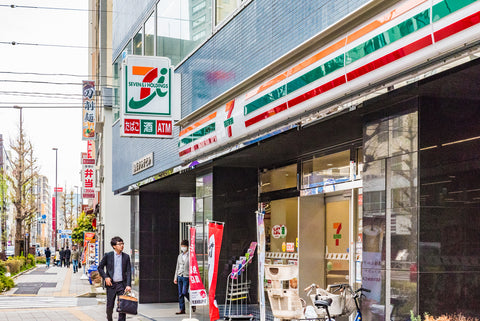
With over 22,00 stores in Japan, 7-Eleven caters to a large chunk of the country’s population. The company has had arguably the biggest impact on convenience store culture, not just in Japan but overseas too. Founded in 1927, 7-Eleven now has over 84,500 stores in 19 countries. In Japan, they're famous for selling a wide variety of foods, especially snacks, sweets, and beverages. You’ll find egg and fruit sandwiches, baked goods, and pastries. 7-Eleven is also famous for its premium coffee, made from Colombian beans.
FamilyMart: Owners of the Best Konbini Fried Chicken

Founded in 1973, FamilyMart has done well to surpass all other konbini chains in Japan except for 7-Eleven. The company operates over 17,000 stores in Japan and 24,000 stores globally. It continues to offer some of the best konbini experiences in the country, thanks to its famous fried chicken, the FamiChiki. This juicy and flavorful chicken seems to catch every first-time taster by surprise because fried chicken served at a convenience store has no business tasting so good! FamilyMart also offers other cool products, including bento boxes, manga, sake, magazines, and onigiri.
Lawson: Provider of Gourmet Sweets
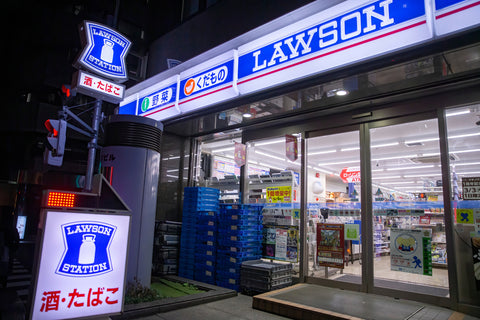
If you crave delicious and affordable sweets, a Lawson convenience store is the place to visit. The company boasts 14,00 stores in Japan and thousands more in other countries like China, Korea, and the Philippines. Millions of people all over the world enjoy its signature sweet, the Hokkaido milk cream cake roll. Other great sweets to try are dorayaki, Taiwanese castella, and cream puffs. Lawson also offers plenty of ice cream options, snacks, clothing, and household supplies. The recently launched subsidiary, Natural Lawson, sells similar items, but they’re all made from natural and organic components.
Ministop: King of Soft-Serve Ice Cream
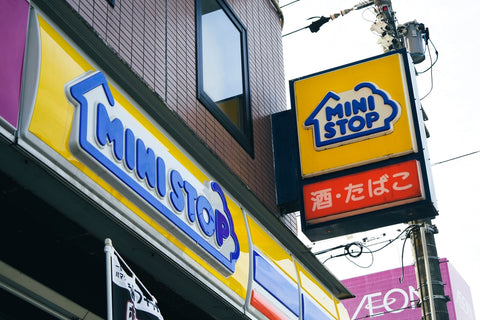
Ministop seems to have brought its underdog identity into global prominence. With barely 2,000 stores in Japan, the store chain has managed to carve out a niche outside of the Big 3 (7-Eleven, FamilyMart, and Lawson) thanks to its soft-serve ice cream. Flavors range from vanilla to mango, depending on the season. Ministop has its own internal kitchen for preparing snacks, bento boxes, and sandwiches. There’s a dedicated area for customers to sit while they await their orders or eat the meals they buy.
The Culinary Delights of Konbini

There are a wide array of food options available at Japanese convenience stores. The most popular of these foods is onigiri, a tasty and affordable rice ball wrapped in nori seaweed and stuffed with a variety of ingredients, such as salmon, tuna, or omelets. Egg sandwiches and fried chicken are also popular offerings, with FamiChicki leading the line.
During the summer, ice cream, soft drinks, and sundaes are served at nearly all 7-Eleven, Lawson, and FamilyMart outlets. In winter, oden hot pots and hot beverages are in high demand. Konbini also sells street food, including takoyaki (octopus dumplings), bento (home-packed meals in lunch boxes), instant ramen, and soba noodles.
Beyond Food: The Surprising Finds at Japanese Konbini
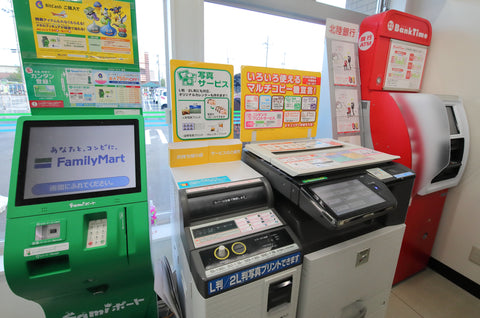
The konbini isn’t all about Japanese food and drinks. Most convenience stores are a treasure trove of grocery products, lifestyle goods, and fashion items. FamilyMart is especially focused on apparel sales. You can buy high-quality and affordable socks, bags, sandals, formal attire, shirts, and underwear at their stores nationwide.
Another unusual item on sale at most stores is tickets to concerts, theme parks, and museums. These products are typically available at small, semi-automated kiosks located right next to the ATM. Other services unique to Japanese convenience stores are postal, photocopying, and shipping services.
Konbini Coffee Culture: A Staple of Japanese Life
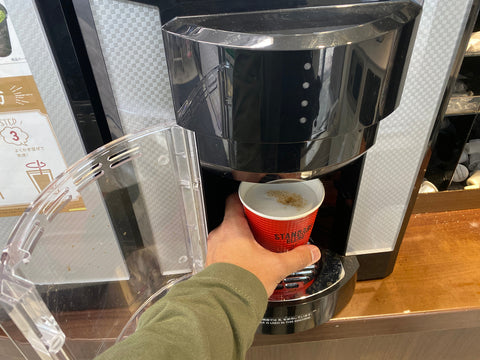
As a hub for both hot and cold beverages, the konbini has proven to be an ideal place for the average citizen to get their coffee. These stores are able to rival specialty coffee shops because of Japan’s coffee culture, which values affordability and speed. Hence, konbini coffee comes directly from countertop coffee machines, allowing customers to get their hot or cold coffee in seconds.
To maintain the high-quality standards of specialty cafes, major konbini companies like Lawson and FamilyMart source premium beans and are constantly refining and improving their brewing methods. Attempts to take coffee orders at the counter and hand over the coffee when ready haven’t worked, so it appears konbini stores will stick to their countertop machines for a while longer.
Seasonal and Limited-Edition Konbini Finds
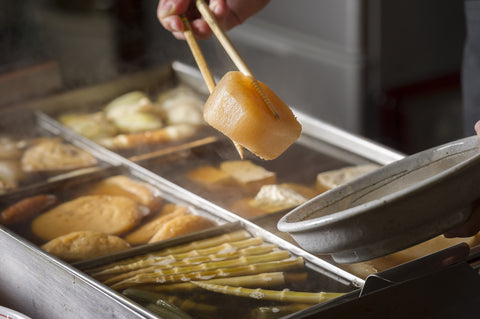
As the months go by each year, Japanese convenience stores capitalize on seasonal trends by selling limited-edition products. Different kinds of sweets and teas are only sold for a short time because they contain seasonal ingredients. The appeal of getting the freshest goods and the fear of missing out entice customers into buying these products in bulk. In the spring, cherry blossom-flavored sweets and matcha green tea are rampant on the shelves of convenience stores and supermarkets. Summer comes with goods made of peach and watermelon. Autumn is the time for Japanese sweets filled with sweet potatoes, pumpkin, and grapes. And in the winter, you'll find limited-edition treats made from strawberries and oranges.
The Role of Konbini in Japanese Daily Life
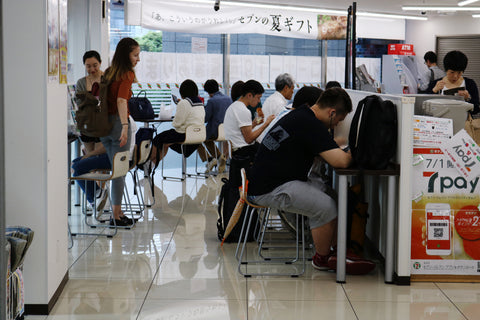
When you consider the fast-paced nature of life in buzzing Japanese cities like Tokyo and Osaka, it’s easy to see the appeal of convenience stores. By offering a truly convenient shopping experience, konbini helps to relieve some of the stress of the everyday worker. They play a role in making life easier for Japanese people by offering excellent customer service, free Wi-Fi, ATM services, and ticket sales in a one-stop shop. Unlike people in other countries, the Japanese see konbini as a go-to spot for quality meals. Hence, you’ll find workers stopping by these stores for a quick meal during their lunch breaks.
Konbini at Night: Safe Havens and Late-Night Snacks
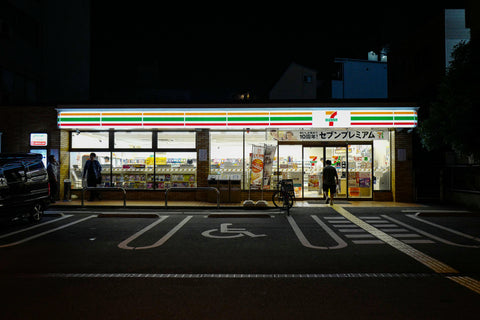
Thanks to their 24-hour availability, convenience stores in Japan are perfectly positioned to serve as a safe and reliable haven for night-time consumers. Late-night workers can get a steady supply of food and energy drinks. Party-goers stop by to get alcohol and other beverages before carrying on with their exciting adventures. Travelers can stop by late at night to refuel their bellies and buy everyday essentials. These stores play the role of work partners and fun friends for people who embrace the parts of Japanese culture that encourage working late or partying all night.
Sustainability Efforts in Japan's Convenience Stores

Climate change and global warming are still major concerns for our generation. Recently, there’s been a growing trend toward sustainability within konbini operations, which is a massive win for the environment. Companies like 7-Eleven have announced that they will make attempts to limit food waste, reduce carbon dioxide emissions, recycle food products, and use sustainable materials. They have practicalized these measures by developing new crop strains for making more preservable fresh food and creating thinner plastic packaging. The companies are also working towards powering their stores with solar panels or more energy-efficient alternatives.
The Cultural Significance of Konbini in Japanese Media
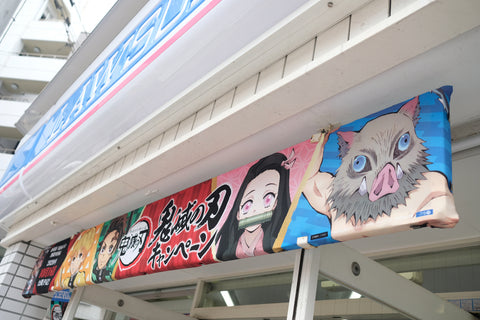
Being a big part of life in Japan, it’s only natural that there will be depictions of convenience stores in Japanese media and pop culture, including manga, anime, and film. The main character in 2020’s Sing Yesterday For Me works in a convenience store and a lot of the plot points revolve around the establishment and its workers. Other popular works set in convenience stores are Convenience Store Boy Friends, Ben-To, and 7-Eleven: Tokimeki wa, Sugusoba ni. Mari Akasaka’s book, Vibrator, is also set in a konbini. The novel was adapted into a movie in 2003.
Why Japanese Convenience Stores Are a Must-Visit for Tourists

If you ever find yourself in Japan, a visit to a convenience store is a must. It will give you a unique glimpse into the efficiency, innovation, and charm of the country. For now, why not try the next best thing?
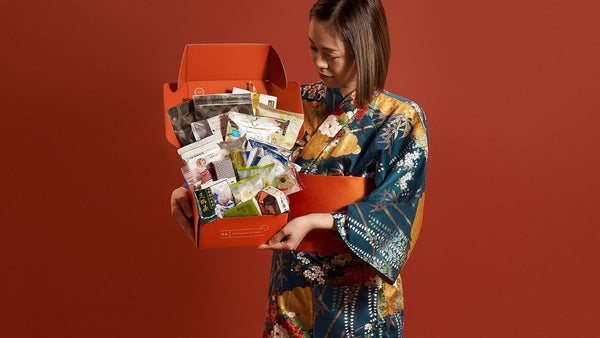
Subscribe to the Bokksu Snack Box and get a monthly supply of the same seasonal Japanese treats sold at these convenience stores.
Author Bio



























